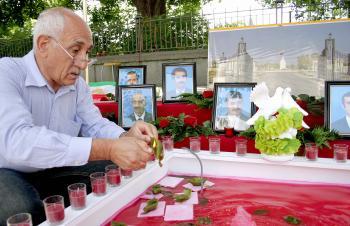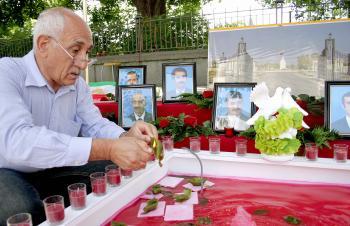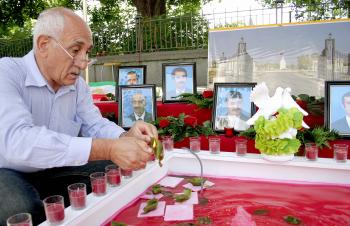OTTAWA—To protest attacks by Iraqi forces on Iranian exiles at Camp Ashraf in Iraq, ten Iranian expatriates have been holding a hunger strike in front of the U.S. Embassy in Ottawa.
The ten, all of whom have family and friends at the camp, have been joined daily by about 100 other Iranians since they began their hunger strike on July 29.
The attacks at Camp Ashraf, home to the People’s Mujahideen Organization of Iran (PMOI) dissident group, has left 14 residents dead and about 500 injured, according to camp residents.
On July 28, Iraqi security forces entered the camp, located an hour north of Baghdad, armed with guns, clubs, tear gas, water cannons, and batons.
The residents in the camp tried to stop the army trucks by forming a human chain. But the Iraqi troops waded into the crowd, hitting people in the head and body with wooden clubs. Shots were also fired.
Numerous videos and still shots have been posted on the Internet showing the residents being clubbed by the troops. The residents did not appear to fight back. Thirty six were arrested. The attack resumed on July 29.
Ottawa Hunger Strikers Protest Camp Ashraf Attacks
Ten Iranians have been protesting outside of the U.S. Embassy against the attack by Iraqi forces on Iranian refugees in Iraq.

A demonstrator lights candles to commemorate the 14 Iranians killed during the raid on Camp Ashraf. Samira Bouaou/The Epoch Times
|Updated:





